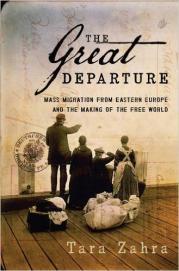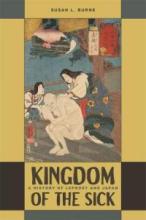
University of Michigan, PhD '05
BIOGRAPHY
Tara Zahra's research focuses on the transnational history of modern Europe, migration, the family, nationalism, and humanitarianism. Her latest book, Against the World: Anti-Globalism and Mass Politics Between the World Wars will be published by W.W. Norton Press in 2023. With Pieter Judson, she is currently working on a history of the First World War in the Habsburg Empire. Zahra is also the author of The Great Departure: Mass Migration and the Making of the Free World (Norton, 2016) and, with Leora Auslander, Objects of War: The Material Culture of Conflict and Displacement (Cornell, 2018). Her previous books include The Lost Children: Reconstructing Europe's Families after World War II (Harvard, 2011) and Kidnapped Souls: National Indifference and the Battle for Children in the Bohemian Lands (Cornell, 2008).
Graduate Advising
I welcome applications from graduate students interested in Central European history (including Habsburg, East European, and German history) in the nineteenth and twentieth centuries, as well as European international history and transnational history. Some of my current and former PhD students have worked on the history of gender and sexuality in late Imperial Vienna; migration and the family in postwar West Germany; the body in late Socialist Czechoslovakia; Jewish culture in postwar Czechoslovakia and Poland, Roma in postwar Hungary; colonialism and empire in Poland and Germany; and masculinity and coal mining in Socialist Czechoslovakia.
Recent Course Offerings
Undergraduate
-
Writing Family History (junior colloquium)
-
Human Rights in World Civilization
-
Twentieth-Century Europe
-
History of Human Rights (in Vienna)
-
East Central Europe in the Twentieth Century
-
Nazism (junior colloquium)
-
European Civilization I & II
-
Gender & Sexuality in World Civilization
-
Migration and Displacement in Twentieth-Century Europe
Graduate
-
History and Anthropology of the Present (with Susan Gal)
-
Seminar: Globalization and Its Discontents (with Jon Levy)
-
Transnational Europe: Twentieth Century
-
Nations & Empires (with Susan Gal)
-
Nationalism in East Central Europe
-
Unsettled Europe: Migration and Displacement in Modern Europe
-
Gender and Sexuality in Modern Europe (with Leora Auslander)
-
Historiography (with Emily Osborn)
-
Migration and Material Culture in Modern Europe (with Leora Auslander)
University and Departmental Service
-
Roman Family Director, Neubauer Collegium for Culture and Society
-
Faculty Sponsor of Transnational Approaches to Modern Europe Workshop
-
Executive Board, Center for Russian, East European, and Eurasian Studies
-
Faculty Affiliate, Center for Study of Gender and Sexuality
-
Editorial Board, Past & Present
Recent Research / Recent Publications
Against the World: Anti-Globalism and Mass Politics Between the World Wars. New York: W.W. Norton, 2023.
Coauthored with Pieter Judson, The Great War and the Transformation of Habsburg Central Europe. Oxford & New York: Oxford University Press, in progress.
Coauthored with Leora Auslander. Objects of War: The Material Culture of Conflict and Displacement. Ithaca, NY: Cornell University Press, 2018.
The Great Departure: Mass Migration from Eastern Europe and the Making of the Free World. New York: W.W. Norton, 2016.
- Review by Benjamin Cunningham in the Los Angeles Review of Books (May 24, 2016)
- Review by The Economist (April 30, 2016)
- Interview with Adam Morgan for the Chicago Review of Books (April 7, 2016)
- Review by Julie M. Klein in the Chicago Tribune (March 17, 2016)
The Lost Children: Reconstructing Europe's Families after World War II. Cambridge, MA: Harvard University Press, 2011.
- George Louis Beer Prize, American Historical Association, 2012
- Radomir Luza Prize, Austrian Cultural Forum, 2012
Kidnapped Souls: National Indifference and the Battle for Children in the Bohemian Lands, 1900–1948. Ithaca, NY: Cornell University Press, 2008; paperback, 2011.
- Book Prize, Czechoslovak Studies Association, 2009
- Barbara Jelavich Book Prize, American Association for the Advancement of Slavic Studies, 2009
- Hans Rosenberg Book Prize, Conference Group for Central European History, 2009.
- Book Prize, Austrian Cultural Forum, 2008-2009
- Laura Shannon Prize, Nanovic Institute, 2008–2009
- “Migration, Mobility, and the Making of a Global Europe,” Contemporary European History 31 (February 2022), 142-54.
- “Against the World: The Collapse of Empire and the Deglobalization of Interwar Austria,” Austrian History Yearbook 52 (2021)
- “Fin d’empire et genre de la déglobalisation,” Clio. Femmes, genre, histoire 53, 2021.
- "'Condemned to Rootlessness and Unable to Budge': Roma, Migration Panics, and Internment in the Habsburg Empire." American Historical Review 122, no. 3 (Jun. 2017).
- "Europe's Shifting Borders." Foreign Affairs (Feb. 11, 2017).
- "Travel Agents on Trial: Policing Mobility in Late Imperial Austria." Past & Present 223 (May 2014): 161–93.
- "Forum: Habsburg History." German History 31 (Jun. 2013): 225–38.
- With Pieter M. Judson. "Introduction." Austrian History Yearbook 43 (2012): 21–27.
- [Papers from the May 2008 symposium, "Indiference to Nation in Habsburg Central Europe."]
- "Going West." East European Politics and Societies 25 (Nov. 2011): 785–91.
- "'The Psychological Marshall Plan': Displacement, Gender, and Human Rights after World War II." Central European History 44 (Mar. 2011): 37–62.
- "Enfants et purification ethnique dans la Tchécoslovaquie d'après-guerre." Annales. Histoire, Sciences Sociales 66 (Apr.–Jun. 2011).
- "'A Human Treasure': Europe's Displaced Children Between Nationalism and Internationalism." Postwar Reconstruction in Europe: International Perspectives 1945–1949 Past & Present Supplement 6 (2011): 210.
- "Imagined Non-Communities: National Indifference as a Category of Analysis." Slavic Review 69 (Spr. 2010): 93–119.
- "'Prisoners of the Postwar': Expellees, Refugees, and Jews in Postwar Austria." Austrian History Yearbook 41 (2010): 191–215.
- "Lost Children: Displacement, Family, and Nation in Postwar Europe." Journal of Modern History 81 (Mar. 2009), 45–86.
- "The Minority Problem: National Classification in the French and Czechoslovak Borderlands." Contemporary European History 17 (May 2008): 137–165.
- "'Each Nation Only Cares for Its Own': Empire, Nation, and Child Welfare Activism in the Bohemian Lands, 1900–1918." American Historical Review 111 (Dec. 2006): 1378–1402.
- "Looking East: East Central European 'Borderlands' in German History and Historiography." History Compass 3, no. 1 (2005): 1–23.
- "Reclaiming Children for the Nation: Germanization, National Ascription, and Democracy in the Bohemian Lands, 1900–1945." Central European History 37 (Dec. 2004): 499–541.
- Writes an opinion piece "Globalization Is Collapsing. Brace Yourselves" for the New York Times (2025)
- Reviews of Against the World: Anti-Globalism and Mass Politics Between the World Wars in The New York Times and The Wall Street Journal.
- Receives Guggenheim Fellowship (2021)
- Delivers the Center for Austrian Studies' 36th Annual Kann Memorial Lecture (2020)
- "The Ugly U.S. History of Separating Famiies Goes Back Way Beyond Trump" in the Daily Beast
- Elected to the American Academy of Arts & Sciences
- Discusses "Europe's Shifting Borders" in Foreign Affairs
- Reviews of The Great Departure in the Chicago Tribune, the Economist, and the Los Angeles Review of Books
- Publishes The Great Departure: Mass Migration from Eastern Europe and the Making of the Free World (Norton, 2016)
- Writes an opinion piece, "America, the Not So Promised Land," for the New York Times
- Coorganizes "People & Things on the Move" conference, Neubauer Collegium
- Coorganizes "Human Trafficking, Labor Migration, and Migration Control in Comparative Historical Perspective" conference, Pozen Family Center for Human Rights
- Awarded 2014 MacArthur Fellowship
- Discusses "Humanitarianism and Displaced Children in Twentieth-Century Europe" [video, 66 minutes]
- Delivers lecture at Shannon Prize Award ceremony [video, 85 minutes]
- Writes on topics related to The Lost Children:Reconstructing Europe’s Families After World War II on The Nation

Leiden University, PhD '00
BIOGRAPHY
Jacob Eyferth is a social historian of China with research interests in the life and work experience of nonelite people throughout the twentieth century. Trained at the universities of Berlin and Leiden, he has held postdoctoral fellowships at Oxford, Harvard, and Rutgers and taught at Simon Fraser University. Currently, he is associate professor in the department of East Asian Languages and Civilizations of the University of Chicago. Most of his work has focused on the countryside and on the mid-twentieth century, c. 1920–1970. His first book, Eating Rice from Bamboo Roots, is an ethnographic history of a community of rural papermakers in Sichuan. It won the 2011 Joseph Levenson Prize for the best book on China in the post-1900 category. He is currently working on a second book, tentatively titled Cotton, Gender, and Revolution in Twentieth-Century China, that uses cloth and clothing as a lens through which to analyze how the monumental changes of the twentieth century—revolution, collectivization, industrialization, etc.—transformed the lives of rural women.
Recent Research / Recent Publications
-
Eating Rice from Bamboo Roots: The Social History of a Community of Handicraft Papermakers in Rural Sichuan, 1920–2000. Cambridge, MA: Harvard University Press, 2009.
-
Editor. How China Works: Perspectives on the Twentieth-Century Industrial Workplace. Routledge 2006.
-
Coedited with Peter Ho and Eduard Vermeer. Rural Development in Transitional China. Frank Cass 2004.
-
"Women's Work and the Politics of Homespun in Socialist China, 1948–1980." International Review of Social History 55, no. 4 (December 2012): 1–27.
-
"Technology as Source and Stream: Trade Gods, Ancestors, and the Transmission of Knowledge among Papermakers in Jiajiang, Sichuan." The Chinese Journal for the History of Science and Technology 1 (2011).
-
"Craft Knowledge at the Interface of Written and Oral Cultures." East Asian Science and Technology Studies 4, no. 2 (2010): 185–205.
-
"De-Industrialization in the Chinese Countryside: Handicrafts and Development in Jiajiang (Sichuan), 1935–1978." China Quarterly 173 (March 2003).
-
"How Not to Industrialize: Observations from a Village in Sichuan." The Journal of Peasant Studies 30, no. 3–4 (April/July 2003): 75–92.
-
Delivers talk on "Papermaking and the Politics of Skill in Modern China" at the John Carter Brown Library [video, 71 minutes]

Yale University, PhD '90
BIOGRAPHY
Amy Dru Stanley is a historian of the United States, with particular interest in law, capitalism, freedom and unfreedom, human rights, the relationship between the household and economic life, and the historical experience of moral problems. Her work has appeared in scholarly books and journals, as well as in the New York Times, the Washington Post, the Nation, Dissent, Slate, and Jacobin. She has received the Quantrell Award for Excellence in Undergraduate Teaching and the Faculty Award for Excellence in Graduate Teaching and Mentoring. In 2018, she was the jury chair for the Pulitzer Prize in history.
Recent Research / Recent Publications
The Antislavery Ethic and the Spirit of Commerce: An American History of Human Rights. Cambridge, MA: Harvard University Press, forthcoming.
From Bondage to Contract: Wage Labor, Marriage and the Market in the Age of Slave Emancipation. Cambridge: Cambridge University Press, 1998.
- Frederick Jackson Turner Prize, 1999. (For the best first book in US History, awarded by the Organization of American Historians.)
- Morris D. Forkosch Award, 1999. (For the best book in intellectual history.)
- Avery O. Craven Award, 1999. (For the best book on the era of the Civil War and Reconstruction, awarded by the Organization of American Historians.)
- Frederick Douglass Prize, 1999, honorable mention. (For the best book on the history of slavery.)
- “The Free Sea: An Antislavery Idea of Human Rights,” in Cambridge History of Human Rights, edited by Jennifer Pitts and Daniel Edelstein, 2025.
- "The Sovereign Market and Sex Difference: Human Rights in America." In American Capitalism: New Histories, edited by Sven Beckert and Christine Desan. New York: Columbia University Press, 2018.
- "Slave Emancipation and the Revolutionizing of Human Rights." In The World the Civil War Made, edited by Greg Downs and Kate Masur. Chapel Hill: University of North Carolina Press, 2015.
- “Contract.” In Keywords for American Cultural Studies, 2nd ed., edited by B. Burgett and G. Hendler. New York: New York University Press, 2014.
- "Slave Breeding and Free Love: An Antebellum Argument over Slavery, Capitalism, and Personhood." In Capitalism Takes Command, edited by Michael Zakim and Gary Kornblith. Chicago: University of Chicago Press, 2012.
- "Instead of Waiting for the Thirteenth Amendment: The War Power, Slave Marriage, and Inviolate Human Rights." American Historical Review 115, no. 3 (June 2010): 732–65.
- "When We Were Young." In Wayne F. Miller: Photographs 1942–1958, edited by Stephen Daiter. Brooklyn: Powerhouse Books, 2008.
- "Wages, Sin, and Slavery: Some Thoughts on Free Will and Commodity Relations." Journal of the Early Republic 24 (Sum. 2004).
- "Dominion and Dependence in the Law of Freedom and Slavery." Law & Social Inquiry 28, no. 3 (Aut. 2003): 1127-34.
- "Marriage, Property, and Ideals of Class." In Blackwell's Companion to American Women's History, edited by Nancy Hewitt. Oxford: Blackwell Press, 2002.
- "The Right to Possess All the Faculties that God Has Given: Possessive Individualism, Slave Women, and Abolitionist Thought." In Moral Problems in American Life, edited by Lewis Perry and Karen Halttunnen. Ithaca, NY: Cornell University Press, 1999.
- "'We Did Not Separate Man and Wife, But All Had to Work': Freedom and Dependence in the Aftermath of Slave Emancipation" in Terms of Labor: Slavery, Serfdom, and Free Labor, edited by Stanley Engerman, Stanford University Press, 1999.
- "Home Life and the Morality of the Marketplace: Slavery and Freedom, Women and Men." In The Market Revolution in America, edited by Melvyn Stokes. Charlottesville: University of Virginia Press, 1996.
- "Beggars Can't Be Choosers: Compulsion and Contract in Postbellum America." Journal of American History 78, no. 4 (Mar. 1992): 1265–93.
- "Conjugal Bonds and Wage Labor: Rights of Contract in the Age of Emancipation." Journal of American History 75, no. 2 (Sept. 1988): 471–500.
- Writes "Freedom for Sale" for Dissent Magazine on academic freedom and American history teaching
- Quoted in the Globe and Mail article, "Donald Trump has taken aim at what he calls the ‘woke’ view of American history"
- Quoted in the NYT article, "Juneteenth Reminds Us to Think About Economic Freedom, Not Just Legal Liberty"
- Quoted in the Washington Post on polarization, the history of race in the US, and the GOP
- Comments on the Florida Board of Education's guidelines on teaching Black history in Newsweek
- Co-writes with Craig Becker for the New York Times on Amazon's opposition to mail-in ballot unionization votes
- Writes for the Washington Post on the Commerce Clause and pandemic liability protection for businesses
- Quoted in the Burlington Free Press on the history of the Confederate Flag
- Quoted in the Pittsburgh Post-Gazette on the meaning of Chicago 1968
- Chairs 2018 Pulitzer Prize for History Jury
- Writes for Slate on the abolition of slavery, theatergoing, and the right to happiness
- Named an OAH Distinguished Lecturer
- Kyle Volk, PhD'08, Praises Stanley's Scholarship on the Oxford University Press blog
- Participates on Yale Panel on the 14th Amendment
- Amy Dru Stanley and Jonathan Levy Embark on New Study of the Economy
- Coorganizes "Human Trafficking, Labor Migration, and Migration Control in Comparative Historical Perspective" conference, Pozen Family Center for Human Rights
- Writes for the New York Times Opinionator blog on the Civil War Enlistment Act
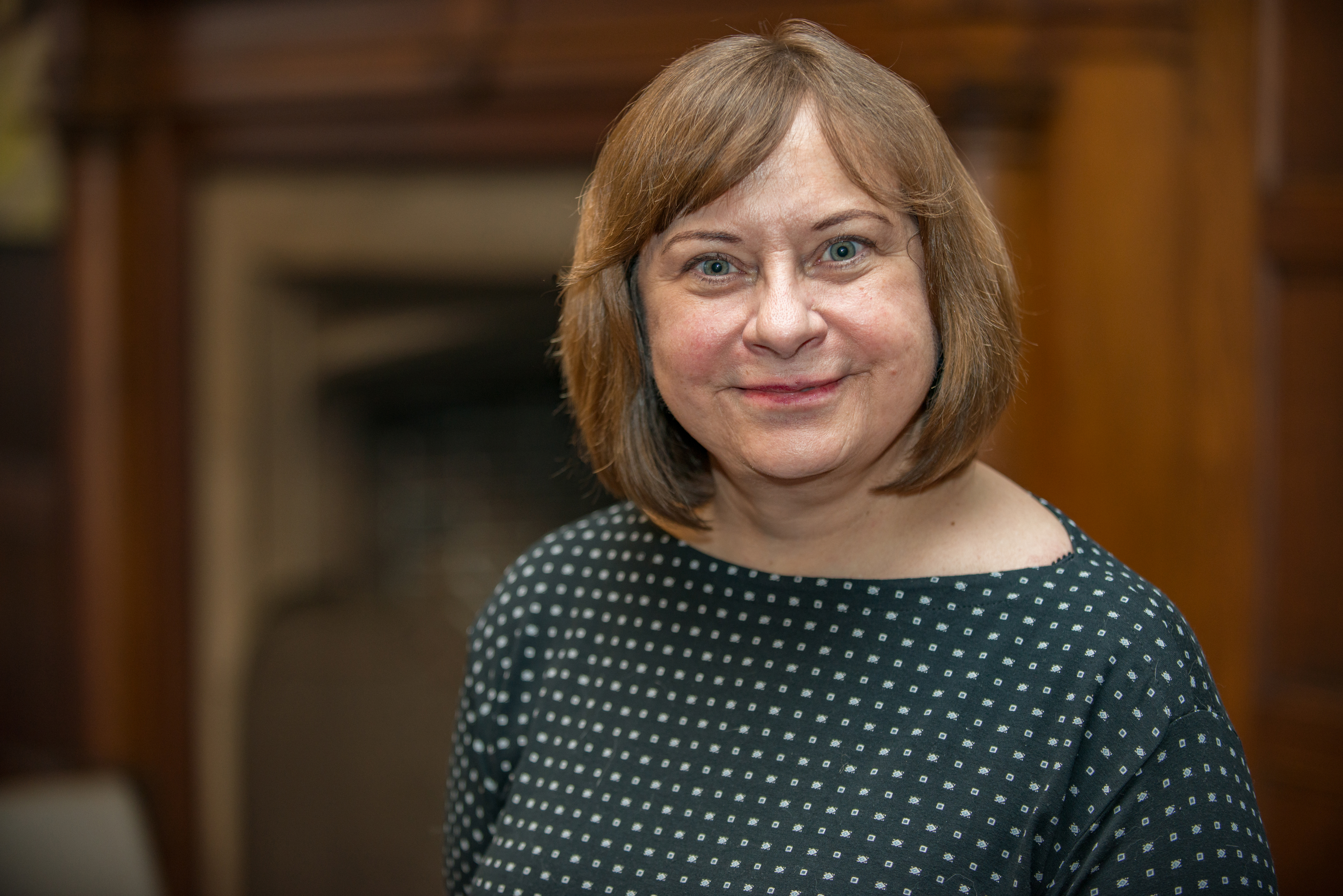
University of Chicago, PhD '94
BIOGRAPHY
I am a historian of Japan's "long" nineteenth century (1780s–1910s). I am interested in the social history of intellectual and cultural practices and the continuities and ruptures between what conventional periodization terms Japan's "early modern" and "modern" eras. My first book, Before the Nation: Kokugaku and the Imagining of Community in Early Modern Japan (Duke, 2003) examined the nativist discourse of the late Tokugawa period. It traced the efforts of early nineteenth century intellectuals to define the nature of "Japan" as a locus of personal and cultural identity and the appropriation of aspects of this discourse by modern scholars who sought to define the contours of modern Japanese nationalism.
With the completion of this project I turned to a new set of questions related to the history of the body as it came to be conceptualized within medical and legal discourses. My second monograph, Kingdom of the Sick: Leprosy, Citizenship, and Japan (University of Hawaii Press, 2019) explores the long history of leprosy in Japan from the late medieval period when it was identified as a "karmic retribution disease" to the modern period when attempts to control the disease prompted the creation of a system of public sanitaria. I argue that in the modern era leprosy, a particularly stigmatized disease, became the object of an intense debate on the place of the chronically ill and disabled within the Japanese nation.
Gender is an important category of analysis within my work and I have a long-standing interesting in issues of reproductive health and reproductive rights. Together with Barbara Brooks, I co-edited Gender and Law in the Japanese Imperium (Hawaii, 2014). I authored the introduction and contributed an essay that examined the criminalization of abortion and infanticide in late nineteenth-century Japan.
I am currently working on two additional monographs. The first explores the intellectual and professional world of an early modern doctor who practiced in the villages in Akita in the 1830s and '40s. It seeks to explore the impact of new forms of knowledge, techniques, and materia medica for medical practice and considers the implications of the "medical revolution" of the early nineteenth century for the state-sponsored introduction of Western biomedicine after 1870. The second builds on my research on medical commodities, alternative therapies, and psychiatric practice and explores the impact of the new medical marketplace on ideas about mental health in Japan from c. 1880–1940.
In recent years, I have become interested in the use of digital tools for historical research, specifically ArcGIS and text mining. I utilized ArcGIS in my research on leprosy to explore the place of private leprosy hospitals and clinics in the cityscape of late nineteenth-century Tokyo. I am working on a digital project called "Mapping Medical Tokyo" that seeks to visualize and analyze the spatial dimensions of health, disease, and medical care in the Meiji-era city.
My work has been supported by the Fulbright-Hays Fellowship, the IIE Fulbright, the Japan Foundation, the Japan Society for the Promotion of Science, and the National Endowment for the Humanities.
Courses
-
Gender and Sexuality in World Civilizations (undergraduate)
-
Edo/Tokyo: Society and the City in Japan (undergrad/grad)
-
Medicine and Culture in East Asia (undergrad/grad)
-
Contact Zones: Treaty Ports in Nineteenth Century Japan (undergrad/grad)
-
Gender and Japanese History (undergrad/grad)
Recent Research / Recent Publications
-
Kingdom of the Sick: A History of Leprosy and Japan. Honolulu: University of Hawaii Press, 2019.
-
Gender and Law in the Japanese Imperium, co-editor with Barbara J. Brooks. Honolulu: University of Hawaii Press, 2014.
-
Before the Nation: Kokugaku and the Imagining of Community in Early Modern Japan. Durham, NC: Duke University Press, 2003.
-
"The Japanese Patent Medicine Trade in East Asia: 'Women's Medicines and the Tensions of Empire." In Gender, Health, and History in East Asia, edited by Izumi Nakayama and Angela Leung. Hong Kong: Hong Kong University Press, 2018.
-
"History, Testimony, and the Afterlife of Quarantine: The National Hansen's Disease Museum of Japan." In Quarantine: Local and Global Histories, edited by Alison Bashford, 210–29. London: Palgrave, 2016.
-
"A Village Doctor Reads the Shang Han Lun: Medical Empiricism in Late Tokugawa Japan." In Antiquarianism, Language, and Medical Philology, edited by Benjamin Elman, (Leiden: Brill, 2015).
-
"Rethinking 'Leprosy Prevention': Entrepreneurial Doctors, the Meiji Press, and the Civic Origins of Biopolitics." Journal of Japanese Studies 38, no. 2 (Sum. 2012): 297–323.
-
"Marketing Health and Beauty: Advertising, Medicine, and the Modern Body in Meiji-Taisho Japan." In East Asian Visual Culture from the Treaty Ports to World War II, edited by Hans Thomsen and Jennifer Purtle, 179–202. (Chicago: Paragon Books, 2009).
-
"Marketing 'Women's Medicines': Gender, OTC Herbal Medicines, and Medical Culture in Modern Japan," Asian Medicine 7, no.1 (2009).
-
“Nanayama Jundō at Work: A Village Doctor and Medical Knowledge in Nineteenth-Century Japan.” East Asian Science, Medicine, and Technology 29 (Aut. 2008): 61–82.
-
Publishes Kingdom of the Sick: A History of Leprosy and Japan (Hawaii Press, 2019)
-
Co-edits Gender and Law in the Japanese Imperium (Hawaii, 2014) with Barbara J. Brooks
-
Discusses the history of leprosy in Japan on ABC Radio Australia [15 mins]
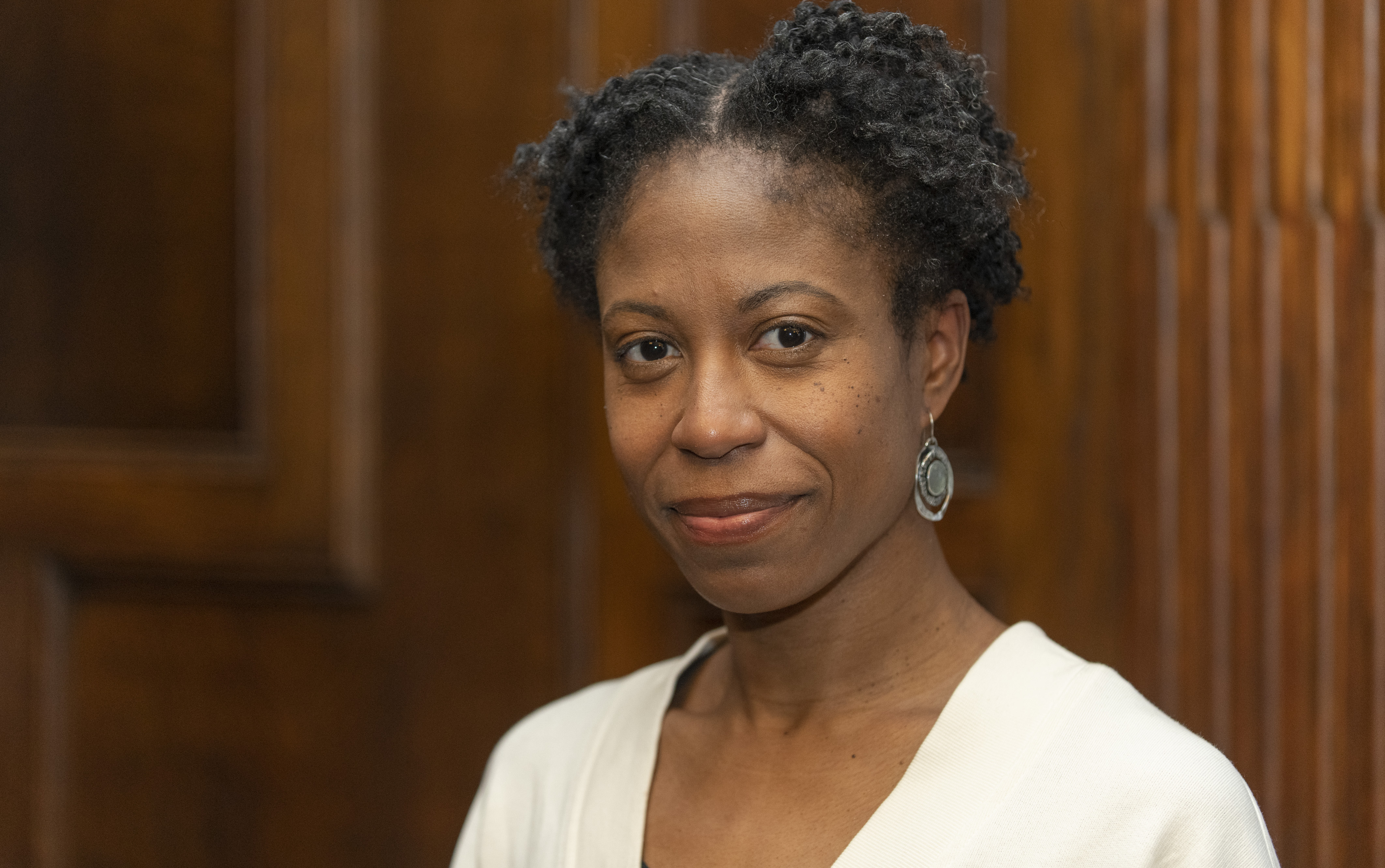
New York University, PhD '10
BIOGRAPHY
Rashauna Johnson is a historian of the 19th-century African diaspora, with an emphasis on slavery and emancipation in the US South and Atlantic World. She is especially interested in the limits and possibilities of archival histories of enslaved and freed people and the worlds in which they labored and lived. Johnson teaches courses on race, slavery, and nation; methodologies of slavery studies; and the 19th-century US.
Johnson is the author of Slavery’s Metropolis: Unfree Labor in New Orleans during the Age of Revolutions (Cambridge UP, 2016; paperback 2018), which was awarded the 2016 Williams Prize for the best book in Louisiana history and the 2018 H. L. Mitchell Award by the Southern Historical Association for the best book on the southern working class. Slavery's Metropolis was also named a finalist for the 2016 Berkshire Conference of Women's Historians Book Prize, honorable mention for the Urban History Association's Kenneth Jackson Award, and a finalist for the 2017 Frederick Douglass Book Prize. Her second book, a forthcoming study of family, race, and region in rural Louisiana, will be published by Cambridge University Press. That project has been supported by the Hutchins Center for African & African American Research at Harvard University, the Mellon Scholars Post-Doctoral Fellowship in African American History at the Library Company of Philadelphia, and The Gilder Lehrman Institute of American History. In addition, she is a coeditor of The Cambridge History of the African Diaspora.
Johnson serves extensively within and beyond the profession. She has been a member of several book prize committees, including Wesley-Logan (AHA), David Montgomery (OAH), and Harriet Tubman (Schomburg), as well as program and fellowship committees. She is an OAH Distinguished Lecturer, a member of the Omohundro Institute Council, and a former board member of the Association for the Study of the Worldwide African Diaspora (ASWAD). Consistent with her commitment to engaged scholarship beyond the profession, Johnson regularly delivers lectures to public and private high schoolers, and she has taught GED and literature courses in correctional facilities.
Johnson grew up in New Orleans, Louisiana. She earned a BA in Afro-American Studies and political science from Howard University, where she graduated summa cum laude and Phi Beta Kappa. She earned a PhD in history from New York University. Her graduate studies were supported in part by the Andrew Mellon Predoctoral Fellowship in the Humanistic Studies, and her dissertation received NYU’s 2011 Dean's Outstanding Dissertation Award in the Humanities. She is also the recipient of the Drusilla Dunjee Houston Award given by the Association of Black Woman Historians. She taught in the history department at Dartmouth College for nine years, where she directed the foreign study program in London (2017) and the honors program (2019-20). She was also affiliated with the Program in African and African American Studies (AAAS), and served on the advisory board for the Mellon Mays Undergraduate Fellowship (MMUF) Program.
Recent Research / Recent Publications
-
Slavery’s Metropolis: Unfree Labor in New Orleans during the Age of Revolutions. Cambridge University Press, 2016 (paperback 2018).
-
Downs, Jim, ed., with Rhae Lynn Barnes, Henry Louis Gates Jr., Rashauna Johnson, and John Stauffer, with Faith Smith and Nii Ayikwei Parkes, “A Novel as Archive: A Roundtable on Frances E. W. Harper’s 1892 Novel, Iola Leroy, about the Civil War and Reconstruction.” Civil War History 69, no. 4 (December 2023): 65-91.
-
“Settlers, Slavery, and the Early Republic.” William and Mary Quarterly, 3d ser., 78, no. 2 (April 2021): 235–42.
-
“Spectacles of Restraint: Race, Excess, and Heterosexuality in Early American Print Culture.” In Heterosexual Histories, eds. Rebecca Davis and Michele Mitchell. New York: NYU Press, 2021.
-
“Les études sur l’esclavage: défis et opportunités méthodologiques,” trans. Emmanuel Roudaut, Revue d’histoire du XIXe siècle 57 (2018): 128-30.
-
“From Saint-Domingue to Dumaine Street: A Family Story of Atlantic Circulations and Great Migrations,” Journal of African American History 102, no. 4 (Fall 2017): 427-43.
-
“A Fragile Empire? Early American Expansion from Below,” Reviews in American History 44, no. 3 (September 2016): 411-417.
-
“Visibility Versus Voice: Enslaved Women in U.S. History and Memory,” Reviews in American History 41, no. 2 (June 2013): 238-245.
-
“‘Laissez les bons temps rouler!’ and Other Concealments: Households, Taverns, and Irregular Intimacies in Antebellum New Orleans.” In Interconnections: Gender and Race in American History, edited by Alison M. Parker and Carol Faulkner, 19-50. Rochester: University of Rochester Press, 2012 (paperback 2014).
-
“Streets and Archives: Slavery and the Spaces of Early New Orleans,” Process History: The Blog of the Organization of American Historians (OAH), April 5, 2017.
-
“Slavery, New Orleans, and the Counting Blues,” Black Perspectives, African American Intellectual History Society (AAIHS), www.aaihs.com, March 28, 2017.
-
“Slavery’s Metropolis: The Place of Enslaved People in a Revolutionary Age,” Age of Revolutions, ageofrevolutions.com, February 27, 2017.
-
As Historians Gather, No Truce in the History Wars, NYT, January 8, 2023
-
Marc Parry, “How Should We Memorialize Slavery? A Case Study of What Happens When Research Collides with Public Memory,” The Chronicle Review of The Chronicle of Education, September 15, 2017.
-
“Raquettes in New Orleans,” Tripod: New Orleans at 300, WWNO Radio Interview, January 2016.

Brown University, PhD '88
BIOGRAPHY
The primary national focus of my research is modern France, but I have found myself intrigued by research problems best treated transnationally. My most recent book, Cultural Revolutions, moves across the Atlantic world from Britain, to colonial and early national America, and finally eastwards again to France. My ongoing pair of projects, Strangers at Home and Conundrums of Commemoration, stay on the European continent but involve a comparative analysis of Paris and Berlin in the twentieth century. Finally, although I have not yet published extensively in this area, I maintain an active interest in and regularly teach the history of European colonialism and the postcolonial world it left behind.
Conceptually, my work focuses on the intersection of material culture, everyday life, and politics. I seek to explain how and why everyday things have become catalysts for conflict, means of expressing identities and constructing selves, vehicles for dissenting opinions, and sites of unexpected state intervention. My research agenda is based on the hypothesis, informed by phenomenology and feminist theory, that key to answering these questions is the close and careful study of material culture, but a close and careful study that always links the concreteness of everyday goods to the abstractions of polity, society, and economy.
Although the courses I offer are necessarily broader and more general than this research agenda, they have been systematically informed by it. I use material and well as visual and textual sources in virtually all my classes, and nearly all are transnational in reach.
TEACHING
Undergraduate courses (selected)
-
Problems in Gender Studies
-
Europe 1930 to the present
-
Colonizations Civ III
-
Jewish Civ III
-
Modern Jewish History
-
Cultural Revolutions
Graduate courses (selected)
-
Seminar: Religion, Politics and Society in Modern Europe (with John Boyer)
-
Everyday Life in Modern Europe (with Sheila Fitzpatrick)
-
Seminar: The Politics of Memory in France and Germany (with Michael Geyer)
-
Gender in Europe (with Susan Gal)
-
Seminar: Race, Racism and and Anti-Racist Movements in Modern Europe
Recent fields for general examinations
-
Modern European History
-
Modern French History
-
Gender History and Theory
-
Culture and Politics in Modern Europe
-
European Social History
Titles of some recent (or current) AB and AM theses and PhD dissertations
-
Islam and the Republic: A Study of the Effects of the Algerian Civil War on French Understandings of Islam
-
Female Action and the Closing of the Women’s Clubs during the Reign of Terror
-
War Relic: Revisiting the Leaning Virgin of Albert
-
Working Class Milieus under Attack: Struggles between the Left and Right in Leipzig and Lyon, 1929–1936 (co-chair with Michael Geyer)
-
The Evolution of French Abolitionism and the Memories of the French and Haitian Revolutions, 1815–1848
-
The Ground Beneath their Feet: Agricultural Industrialisation and the Remapping of Rural France, 1954–1976
-
Making Islam French Unsettling French Algeria: Settlement, Terror, and Violence in the French-Algerian War, 1954–1962.
-
The Permanent Souvenir: Tattoos and Travel from Banks to Barnum Cultivating the Nation, Refining Empire: Wine, Sugar, and Nation-building in Guadeloupe and the Aude, 1880–1910
-
The Imperialism of Un-Free Trade: Nineteenth Century British Wine-Trading Enclaves in Oporto, Madeira, and Andalusia
-
Writing Black, Talking Back: Consuming, Performing, and Selling Race in Postwar France, 1945–1968
-
From Children to Citizens: Republican and Catholic Primary Education in France, 1880–1914
-
Fashioning the Folk: The Production and Reproduction of Alsatian Traditional Dress, 1871–1939
-
The Rebirth of the Mediterranean: Migrants, Race, Nation, and Labor in the Western Mediterranean, 1914–1940
-
Pale Fire: Jews in Revolutionary White Russia, 1917–1929 (cochair with Sheila Fitzpatrick)
-
Selling Paris: The Real Estate Market and Commercial Culture in the Nineteenth-Century Capital
Recent Research / Recent Publications
My publications in the domain of material culture and the histories of production and consumption include two books: Cultural Revolutions: Everyday Life and Politics in Britain, North America, and France (Oxford: Berg Press, 2008; Berkeley: University of California Press, 2009); French translation (Presses Universitaires de Mirail, 2009) and Taste and Power: Furnishing Modern France (Berkeley: University of California Press, 1996). I am also currently working on two book-length projects in this area: The Everyday of Modern Citizenship: France and Germany 1918–1940 and Conundrums of Commemoration.
My articles on material cultural and politics include "Perceptions of Beauty and the Problem of Consciousness," in Lenard Berlanstein, ed. Rethinking Labor History (Urbana: Univeristy of Illinois Press, 1993); "After the Revolution: Recycling Ancien Régime Style in the Nineteenth Century," in Bryant T. Ragan and Elizabeth Williams, eds. Recreating Authority in Revolutionary France (New Brunswick, NJ: Rutgers University Press, 1992), pp. 144–174; "The Gendering of Consumer Practices in Nineteenth-Century France," in Victoria de Grazia and Ellen Furlough, eds. Sex of Things: Essays on Gender and Consumption (Berkeley: University of California Press, 1996), pp. 79–112; “Regeneration through the Everyday? Furniture in Revolutionary Paris,” in a special issue of Art History 28, no. 1 (Spring 2005), ed. Katie Scott, and; “Beyond Words,” American Historical Review (October 2005); “Historians and Architectural History,” Journal of the Society of Architectural Historians (March 2006).
My work on material culture, postcolonialism, and everyday politics in contemporary Europe includes three essays: "'Sambo' in Paris: Race and Racism in the Iconography of the Everyday," (coauthored with Tom Holt) in Susan Peabody and Tyler Stovall, eds. The Color of Liberty: Histories of Race in France, (Raleigh, N.C.: Duke University Press, 2002); "Bavarian Crucifixes and French Headscarves: Religious Practices and the Postmodern European State," Cultural Dynamics 12/3 (2000): 183–209 and "Accommodation, Resistance, and Eigensinn: Evolués and Sapeurs between Africa and Europe," in Belinda Davis, Michael Wildt, eds. Alltag, Erfahurng, Eigensinn: Historisch-Anthropologische Erkundungen (Frankfurt/New York: Campus Verlag, 2008), pp. 205–217.
My most recent area of research is at the intersection of Jewish history and material culture. Some early thoughts on those questions may be found in "'Jewish Taste'? Jews, and the Aesthetics of Everyday Life in Paris and Berlin, 1933–1942," in Histories of Leisure, ed. Rudy Koshar, 299–318 (Oxford: Berg Press, 2002). That reflection has taken a somewhat different turns in "Resisting Context: The Spiritual Objects of Tobi Kahn," in Objects of the Spirit: Ritual and the Art of Tobi Kahn, ed. Emily Bilski, 71–78 (New York: Avoda/Hudson Hills, 2004); "Coming Home? Jews in Postwar Paris," Journal of Contemporary History 40, no. 2 (2005): 237–59; and "The Boundaries of Jewishness or when is a Cultural Practice Jewish?" Jewish Social Studies (Spr. 2009). Finally, "Archiving a Life: Post-Shoah Paradoxes of Memory Legacies" for a volume edited by Alf Lüdtke and Sebastien Jobs, submitted September 2008, is my most recent venture in this area.
My work in the field of feminist history and gender studies includes Différence des sexes et protection sociale (XIXe–XXe siecles), a coedited volume with Michelle Zancarini-Fournel (Paris: Presses Universitaires de Vincennes, 1995); "Feminist Theory and Social History: Explorations in the Politics of Identity," Radical History Review 53 (Fall 1992): 158–76; "Do Women's + Feminist + Men's + Lesbian and Gay + Queer Studies = Gender Studies?" differences 9, no. 3 (Fall 1997): 1–30; Le genre de la nation. Fall 2000 issue of Clio: Histoire, femmes et sociétés on gender, citizenship, and the nation, coedited with Michelle Zancarini-Fournel; "Women's Suffrage, Citizenship Law and National Identity: Gendering the Nation-State in France and Germany,1871–1918," in Women's Rights and Human Rights: International Historical Perspectives, ed. Patricia Grimshaw, Katie Holmes and Marilyn Lake, 138–52 (London: Macmillan, 2001); "Gender at the Intersection of the Disciplines," Cahiers Parisiens/Parisian Notebooks 2 (2006): 434–46; and an issue on "Judaïsme(s): genre et religion" for Clio: Femmes, Genre, Histoire 44 (2016), co-edited Sylvie Steinberg.
-
Recipient of the Quantrell Award for excellence in undergraduate teaching, 2023
-
Co-edits Objects of War with Tara Zahra, 2018
-
Featured in "French Historians under the Spotlight," French History Network (blog), Apr. 2017
-
Delivers Samuel and Lillian Solotkin Memorial Lecture in Jewish Studies, Indiana University, Feb. 2017
-
Taste and Power: Furnishing Modern France cited "Trump, Taste, and Power," Arts & Econ (blog), 2017
-
Leads Teaching from Objects workshop, Western Society for French History, 2015
-
Co-organizes "People and Things on the Move" conference with Tara Zahra, Neubauer Collegium, May 2015
-
Named the inaugural Arthur and Joann Rasmussen Professor in Western Civilization
-
Awarded Faculty Award for Excellence in Graduate Teaching and Mentoring

Stanford University, PhD '00
Emily Lynn Osborn is Associate Professor in the Department of History and the College.
Affiliated Faculty, Center for Gender and Sexuality Studies
Faculty Affiliate, Center for the Study of Race, Politics, and Culture
Faculty Board, Center for International Social Science Research
Faculty Board, Pozen Family Center for Human Rights
BIOGRAPHY
Osborn is a historian of Africa, with a particular interest in precolonial and colonial West Africa. She is currently the Faculty Director of the Senegal study abroad program, and she has also served as co-director of the Committee on African Studies, chair of the College’s British fellowships committee, and on the Faculty Boards of the Center for International Social Science Research and the Pozen Family Center for Human Rights. She is also the Faculty Director of the Social Sciences Postdoctoral Teaching Fellows program and an editor of The Journal of African History.
Her first book, Our New Husbands Are Here: Households, Gender, and Politics in a West African State from the Slave Trade to Colonial Rule, uses gender analysis to investigate the intertwined history of household making and statecraft in Kankan, Upper Guinée (located in Guinea). Other topics on which Osborn has published include the history of technology transfer and diffusion in West Africa; the role of intermediaries in colonial rule, the Anthropocene in Africa; the history and cultural significance of the color red in the Atlantic world; and the relationship in West Africa of containers and mobility. She has also researched the effort by the United States government in the 1950s and 1960s to export the model of the land grant university to Africa.
Osborn earned her A.B. from the University of California, Berkeley, and her Ph.D. from Stanford University. Her research has been supported by Fulbright IIE and Fulbright-Hays fellowships and by the American Council of Learned Societies and Social Science Research council. Before coming to the University of Chicago, Osborn served as the Carl E. Koch Assistant Professor of History at the University of Notre Dame.
TEACHING INTERESTS
At the University of Chicago, Prof. Osborn teaches courses on precolonial, colonial, and postcolonial African history; graduate and undergraduate seminars on African historiography; oral sources of history; gender and state-craft; as well as histories on enslavement, the transatlantic commerce in enslaved peoples, and the making of the Atlantic world.
Recent Research / Recent Publications
- “Containers and Mobility in West Africa.” In "On Containers," edited by Andrew Shyrock and Daniel Lord Smail. Special issue, History and Anthropology 29, no. 1 (2018): forthcoming.
- Editor, The Journal of African History.
- "Containers, Energy, and the Anthropocene in West Africa." In Economic Development and Environmental History in the Anthropocene: Perspectives on Asia and Africa, edited by Gareth Austin. New York: Bloomsbury, 2017.
- "From Bauxite to Cooking Pots: Aluminum, Chemistry, and West African Artisanal Production." In "Exploring Global History through the Lens of History of Chemistry," edited by Lissa Roberts. Special issue, History of Science 54, no. 4 (Dec. 2016): 425–42.
- "Red Echoes of Enslavement: Cochineal Red, West Africa, and the Slave Trade." In A Red Like No Other: How Cochineal Colored the World, edited by Carmella Padilla and Barbara Anderson. New York: Skira Rizzoli, 2015.
- "Work and Migration." In The Oxford Handbook of Modern African History, edited by Richard Reid and John Parker. Oxford: Oxford University Press, 2013.
- Our New Husbands Are Here: Households, Gender, and Politics in a West African State from the Slave Trade to Colonial Rule. Athens: Ohio University Press, New African Histories, 2011.
- "Casting Aluminium Cooking Pots: Labour, Migration and Artisan Production in West Africa’s Informal Sector, 1945–2005." African Identities 7, no. 3 (Fall 2009): 373–86.
- "Loyalty, Perfidy, and Scandal in Guinée Française: The Noirot-Penda Affair." In Intermediaries, Interpreters and Clerks: African Employees and the Making of Colonial Africa, edited by Benjamin N. Lawrance, Emily Lynn Osborn, and Richard L. Roberts. Madison: University of Wisconsin Press, 2006.
- Coauthor with Richard Roberts and Benjamin Lawrance. "Introduction: Intermediaries and the Making of Colonial Africa." In Intermediaries, Interpreters and Clerks: African Employees and the Making of Colonial Africa, edited by Benjamin N. Lawrance, Emily Lynn Osborn, and Richard L. Roberts. Madison: University of Wisconsin Press, 2006.
- "'Rubber Fever,' Commerce and French Colonial Rule in Upper Guinée, 1890–1913." Journal of African History 45 (2004): 445–65.
- "'Circle of Iron': African Colonial Employees and the Interpretation of Colonial Rule in French West Africa, 1890–1910." Journal of African History 44 (2003): 27–48. Reprinted in The Rise and Fall of Modern Empires: Social Organisation, vol. I, edited by Owen White. Farnham, England: Ashgate, 2013.
- Delivered convocation address, Graham School [20 mins]
- Participates in Q&A on how to teach the Anthropocene, EuropeNow, with syllabus
- Received 2016 Quantrell Award for Excellence in Undergraduate Teaching
- Coorganized "Climate Change: Disciplinary Challenges to the Humanities and Social Sciences"
- Organized "Global Midwest" conference
- Discusses effective public speaking for AHA Today (blog)
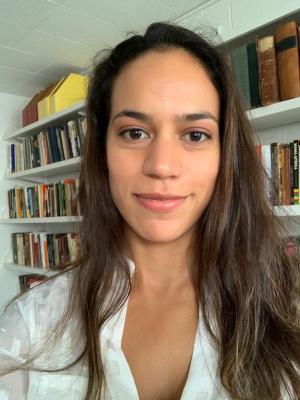
University of Virginia, PhD '15
BIOGRAPHY
Mary Hicks is a historian of the Black Atlantic, with a focus on transnational histories of race, slavery, capitalism, migration and the making of the early modern world. Her first book, Captive Cosmopolitans: Black Mariners and the World of South Atlantic Slavery, 1721-1835, reimagines the history of Portuguese exploration, colonization and oceanic commerce from the perspective of enslaved and freed black seamen laboring in the transatlantic slave trade. As the Atlantic world’s first subaltern cosmopolitans, black mariners, she argues, were integral in forging a unique commercial culture that linked the politics, economies and people of Salvador da Bahia with those of the Bight of Benin.
More broadly, she seeks to interrogate the multiplicity of connections between West Africa and Brazil through the lens of mutual cultural, technological, commercial, intellectual and environmental influences and redefine how historians understand experiences of enslavement and the middle passage. In addition to investigating the lives of African sailors, she also explores the cultural and religious sensibilities of enslaved and freed African women in living in 19th century Salvador da Bahia. Along these lines, her second book will detail the emergence and elaboration of new gendered and racialized subjectivities in the wake of Portugal’s initiation of trade with West Africa in the fifteenth century.
Prof. Hicks received her B.A. from the University of Iowa and her Ph.D. from the University of Virginia, where she was a recipient of the Jefferson Fellowship. She has also received the Ford Foundation Dissertation Fellowship and the Mamolen Fellowship at the Hutchins Center at Harvard University. She is the winner of the Southern Historical Association’s Latin American & Caribbean Section Dissertation Prize and been a finalist for the CGS/Proquest Distinguished Dissertation Award for the Humanities and Fine Arts.
Recent Research / Recent Publications
-
Captive Cosmopolitans: Black Mariners and the World of South Atlantic Slavery, 1721-1835 (under contract with Omohundro Institute of Early American History & Culture for The University of North Carolina Press), forthcoming
-
“Transatlantic Threads of meaning: West African Textile entrepreneurship in Salvador da Bahia, 1770- 1870,” Slavery & Abolition 41:4 (December 2020), 695-722
-
“Financing the Luso-Atlantic Slave Trade: Collective Investment Practices from Portugal to Brazil, 1500-1840,” Journal of Global Slavery 2:3 (2017), 273-309
-
“João de Oliveira’s Atlantic World: Mobility and Dislocation in Eighteenth-Century Brazil and the Bight of Benin,” in The Many Faces of Slavery: New Perspectives on Slave Ownership and Experiences in the Americas Eds. Lawrence Aje and Catherine Armstrong, (London: Bloomsbury Press, 2019)
-
“Middle Passage,” in 400 Souls, Eds. Keisha N. Blain and Ibram X. Kendi (New York: Basic Books, 2021)
-
Review of Sharla Fett’s Recaptured Africans: Surviving Slave Ships, Detention and Dislocation in the Final Years of the Slave Trade in Black Perspectives (November 16, 2018)
-
Review of Hazel V. Carby’s Imperial Intimacies: A Tale of Two Islands in Black Perspectives (February 5, 2021)
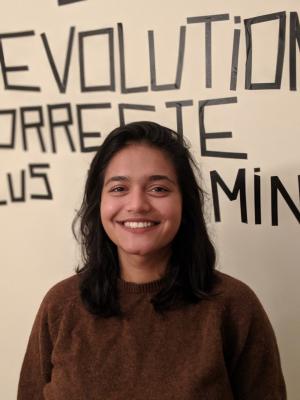
RESEARCH INTERESTS
Race and capitalism, domestic workers, post-emancipation, labor and gender history, the household.
DISSERTATION
Help, Health, and Happy Endings: Tracing the Political Economy and Lived Experiences of Domestic Labor in the United States
PUBLICATION
Review, "Immunity, Capitalism, and the Antebellum New Orleans," of Kathryn Olivarius’s Necropolis: Disease, Power, and Capitalism in the Cotton Kingdom in Black Perspectives by the African American Intellectual History Society, 2022.

RESEARCH INTERESTS
Nineteenth- and twentieth-century Central Europe; gender and sexuality; queer history; material culture; cultural history; sensory history
DISSERTATION
Materiality and Memory in East German LGBT Communities, 1980s to the Present

